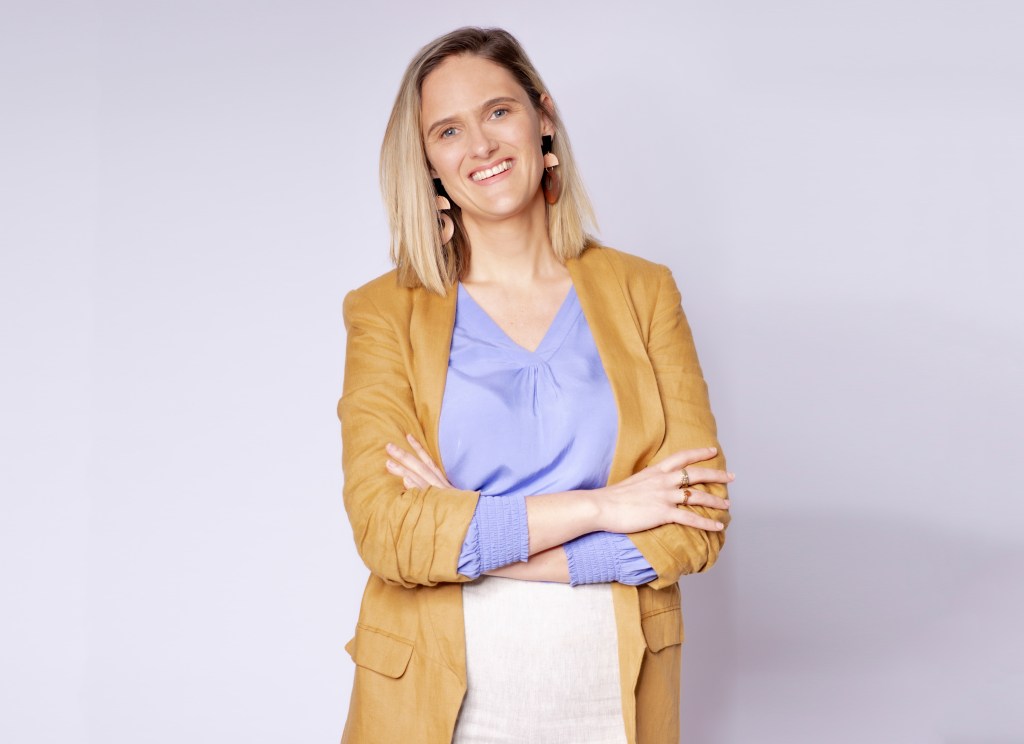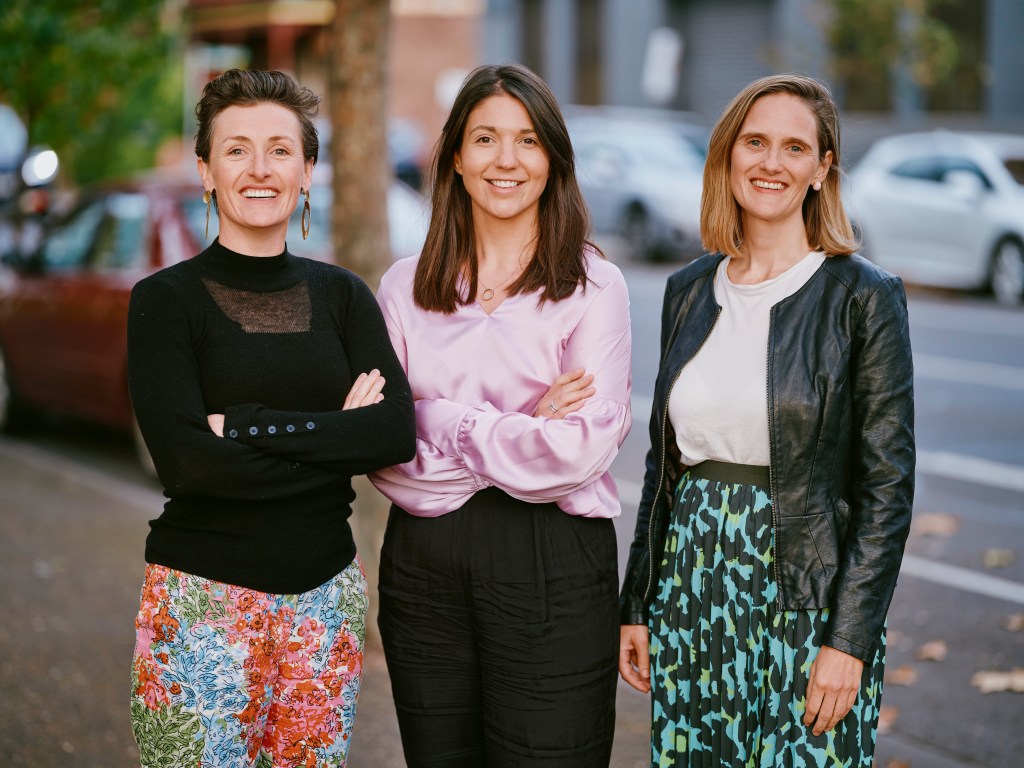Just hold your nerve, keep your money invested and let the share market do the rest is this superannuation fund CEO’s guidance to women.

Christina Hobbs is a co-founder and CEO of Verve Super, an Australian superannuation fund run by and for women, with $220 million in funds under management. Inequities within the Australian superannuation system are glaring, and the gap is only expected to widen in the wake of Covid, when people were able to access funds early. “Just getting started” is the most important move a woman can make, Hobbs says, to enhance future financial security.
Before founding Verve Super, you were a humanitarian and financial inclusion expert for the UN. How did that shape your approach to money?
Christina Hobbs: I worked with the UN for 15 years and worked in humanitarian and development settings. I led a lot of projects in actually giving humanitarian assistance funds to women to handle for their family, and that actually showed in most instances to have a really positive impact. I think it first triggered for me this excitement around the power of money and what we could do with money.
Why do Australian women face such disparity in super compared with men?
CH: Australian women are retiring with about 37% less super than men. In a woman’s first year in the workforce the pay gap is typically around $5,000, compared to a man entering the same job. That will instantly be $500 super gap. But if you think about compounding interest, that could lead to a difference of $10,000 in a woman’s super balance, just that very first year. So that’s the first problem. The big gaps start happening when women take time out of the workforce to care for children. Then, when women come back into the workforce, they generally take on lower paid work and the big pay gaps start opening up – which also lead to superannuation gaps.
Given that a huge part of the gender inequity we see in superannuation is due to systemic issues – the gender pay gap, women being the primary carers in families for example – how much can one super fund do? What widespread changes do we need to see if we want equal financial opportunity?
CH: Ultimately, we need a rethink of the whole superannuation system. The Australian superannuation system was designed to support everybody to retire at a level of comfort, but what’s really evolved today is an area for big tax breaks for the really wealthy. We need to go back to that initial purpose. That means closing some of the areas where the ultra-wealthy are putting money through superannuation to pay less tax, and diverting that so, for instance, anybody on parental or carer’s leave can earn a superannuation benefit. That to me would be a lot more in line with what the purpose of superannuation is supposed to be.

Verve Super only invests ethically and sustainably. When you invest in alignment with your values, do you risk losing out on money?
CH: We refer to it as being uncompromising in how we invest – so we don’t compromise on returns, and we don’t compromise on ethics and values. There’s some really brilliant research out there now in Australia from the Responsible Investment Association, globally from Harvard and Oxford, which is actually showing that – over the medium and long term – ethical, responsible investment funds have actually outperformed the market. They’re not going to be the cheapest fund on the market, but we believe it’ll ultimately lead to better performance. For us, it’s really just applying what we already know from the research and bringing it into our investment philosophy.
Do you think going forward we’re going to see great growth for ethical investments?
CH: We’re seeing an explosion in terms of ethical investing at the moment. Most Australians now say they want to invest ethically, and we’re seeing more and more investors every year aligning their investments to their values.
What would your number one piece of advice be for women looking to invest and build wealth?
CH: Probably just getting started is the biggest one. We are working now on an investment app, Verve Money, that we will be launching soon. We’ve interviewed about 500 people for this, and what we heard over and over again is ‘I’ve got $10,000 in a bank or $20,000 in the bank or $30,000 in the bank’, and a real fear about losing money. The conversations we’re trying to have with people at the moment is that in the situation we’re in now, where inflation is at 8%, you’re losing money just by having your money sitting in the bank. Just hold your nerve, keep your money invested and let the share market do the rest.
It’s interesting to hear you say that you aren’t too worried about the economic climate right now.
CH: I think where people get in real trouble is they start pulling their money out when it’s at the bottom. But I think the other great thing about ethical investing is that when you look at the performance over the long term, the reason why those funds tend to outperform is that they don’t have as much volatility; they tend to just steadily go up.
So where are you, personally, putting your money?
CH: I’ve got it split across a few different things. I add additional contributions to my super, and that’s a really good tip for anyone that’s investing for long term – think about just adding to your super. Then I invest in a few individual companies that I’m following, but most of my money invested in equities is invested in a handful of sustainable ETFs (exchange-traded funds). The other area where I invest is in some specific female-founded businesses. I made investments in specific start-up businesses, which is obviously a really high-risk way of investing, but I think it’s a really exciting way as well. And obviously, the golden rule of investing is really aligning it to your risk level, and never taking risks that you aren’t prepared for.
This is an edited version of the conversation.
This article represents the views only of the interviewee and should not be regarded as the provision of advice of any nature from Forbes Australia. The article is intended to provide general information only and does not take into account your individual objectives, financial situation or needs. Past performance is not necessarily indicative of future performance. You should seek independent financial and tax advice before making any decision based on this information, the views or information expressed in this article.